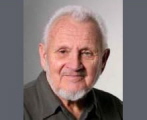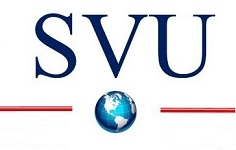 Jaroslav Folta, a mathematician and science historian, who had been in charge of the department of history science and technology at the National Technical Museum in Prague, died prematurely and unexpectedly on March 25, 2011, shortly before his 78th birthday.
Jaroslav Folta, a mathematician and science historian, who had been in charge of the department of history science and technology at the National Technical Museum in Prague, died prematurely and unexpectedly on March 25, 2011, shortly before his 78th birthday.
I have known Jarda, as he liked to be called, for a long time, more than forty years, in fact. In the mid sixties, I was then employed by NIH and, apart from my official responsibilities, I became keenly interested in history of science, especially Czechoslovak science and that’s how I came in contact with Dr. Jaroslav Folta who was an officer of the Czechoslovak Society for History of Science and Technology. He was very kind in sending me various materials about which I then periodically wrote abstracts for the periodical Isis. As a “reward” I sent him a copy of the SVU publication, The Czechoslovak Contribution to World Culture (1964) which I edited. We then lost contact with each other for some twenty years.
On my first trip to Czechoslovakia after the Velvet Revolution in 1990, I made sure to get in contact with Dr. Folta. This was fortuitous, as Jarda subsequently helped me a lot in making contacts with various Czech and Slovak scientists and institutions. I remember how proudly he took me to their Society’s small office to show me our “precious” book that I sent him many years before and which they kept safely during the Communist era under lock and key.
Dr. Folta was instrumental in getting me in touch with the Czechoslovak Council of the Scientific Societies, especially Prof. Jaroslav Valenta, with whose help we then organized the first SVU Congress in Prague in 1992 and another in 1994. Dr. Folta played a pivotal role in both Congresses. It was also he who arranged a trip for me and my family to Slovakia where I met leading scientists associated with the Slovak Academy of Sciences.
Jarda was not a headline man. He prefersed to stay behind the scenes and do all the work, while others got the credit. Albeit almost invisible to others, in my mind, he was the most active and most dependable person I have ever met on the territory of Czechoslovakia. I was glad I could count him among my closest friends.
———–
As for his personal side, Jaroslav Folta was born in Plzeň on April 2, 1933. He spent his childhood in western Bohemia and completed gymnasium in Plzeň in 1951. He studied mathematics at Charles University, receiving his RNDr. degree in 1955. In 1961, he defended his dissertation at the Faculty of Mathematics and Physics at Charles University. which awarded him CSc. diploma.
For 38 years he was associated with the Historical Institute of Czechoslovak Academy of Science, specializing in history of mathematics and natural sciences. When the Academy was forced to reduce its size and with it also the number of associated scientists, in 1993, he transferred to the National Technical Museum in Prague where he became in charge of research in the department of exact sciences and technology, which the employed six people.
Since 1991 he had been in charge of the International Commission for Teaching History of Science and Technology and in the same year he became Vice President of the Council of Scientific Societies of the Czech Republic.
He had been an active member of the Czechoslovak Society for History and Technology and in 1989 became its Vice President. His research work had focused in the area of history of mathematics and history of science and technology, in general. He coordinated a large project on History of Technology in Czech Lands in the 20th Century, two volumes covering the period 1918–1945 (1995) and three volumes the period of 1945–1992 (2003), for which they received the prize “Gloria Musaealis (2003). Subsequently his department received a research grant to write a comparative history of domestic and foreign technology for years 2004–2008.
He has been a member of editorial boards of the Czech journal Dějiny věd a techniky (History of Science & Technology) and the Austrian Schriftenreihe Geschichte der Naturwissenschaften und Technik. He renewed the series Práce z dějin techniky a exaktních věd (Contributions to History of Technology and Exact Sciences), published since 2000 and Acta historiae rerum naturalium necnon technicarum, published since 1997.
He was at the cradle of the original Czechoslovak SVU Chapter (established in 1992), which later split into Prague and Bratislava Chapters. He played a significant role in the planning the program of the first two SVU World Congresses in Prague in 1992 and 1994, and in Brno in 1996, and in establishing cooperation with the Slovak scientists, and the Slovak Academy of Sciences. He was instrumental in arranging public lectures by the Chapter and later became its Treasurer.
His death is a great loss to history of science and technology community, especially to those who had known him personally.
MR
